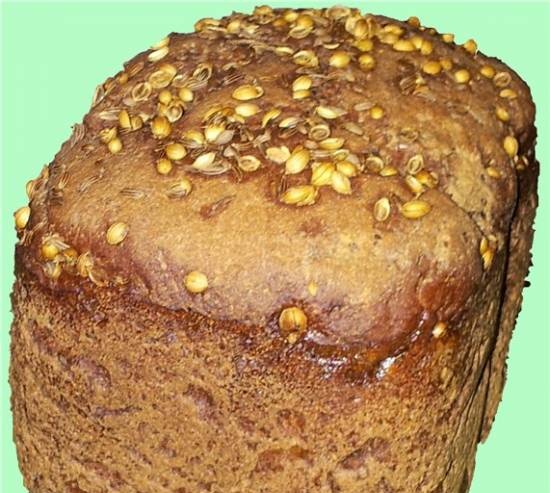|
 Are you reading this article with a mug of coffee in your hand? Then you can feel absolutely calm. Are you reading this article with a mug of coffee in your hand? Then you can feel absolutely calm.
Research conducted by epidemiologist Mark Gunther of Imperial College London has shown that those who drink large quantities of coffee have a lower risk of premature death, regardless of cause. The studies were carried out on more than 500,000 people for 16 years.
Or do you prefer tea instead of coffee? “Don't worry: the compounds in black tea help gut bacteria fight infections and prevent the dangerous flu virus,” scientists at the University of Washington School of Medicine told Science magazine.
It's good to know that our favorite hot drinks can also be healthy. But what is the best drink to choose from?
The best remedy for a long life? Tea.
If you want to live longer, turn on the kettle. The latest study on tea confirms the National Institutes of Health data published in the New English Journal of Medicine in 2012. The magazine said that men who drank 6 or more cups of tea a day had a 10% lower risk of death than men who did not drink tea. For women in this category of consumption, the risk of mortality is correspondingly 15% lower.
Tea drinkers have a longer life than the average. An Australian study published in the Journal of Clinical Nutrition in 2015 found that women survived to the age of 70 to 80 much more often if they drank at least 2 cups of tea a day. This is due to a unique compound in tea that can change the body's genetic code.
Veronica Eck of the University of Uppsala, Sweden, whose research was published in Human Molecular Genetics, argues that regular tea drinking is associated with epigenetic changes in 28 different gene positions that are known to counteract cancer and estrogen metabolism.
The best source of antioxidants? Coffee.
Coffee and tea contain many antioxidants called polyphenols that slow inflammation and repair damaged cells.
 Bob Arnot, in his bestselling coffee drink diet, explains how to get the most out of your drink. Bob writes: “We know that inflammation is the driving force behind many diseases, such as heart disease and stroke, which polyphenols can do just fine. And coffee contains two and a half times more of them than tea. " Bob Arnot, in his bestselling coffee drink diet, explains how to get the most out of your drink. Bob writes: “We know that inflammation is the driving force behind many diseases, such as heart disease and stroke, which polyphenols can do just fine. And coffee contains two and a half times more of them than tea. "
But he also warns that there is a huge difference between brands because of the roasting methods. The place where the coffee beans grow is of great importance.
“If you want to get more polyphenols from your coffee, go for beans from high altitude plantations such as Nyeri, Kenya. It is best to consume dark Greek or Turkish roasted coffees as they retain higher levels of polyphenols than lighter French or Italian roasted coffees, ”says Arnot. "But different polyphenols are good for your health, so drink tea too."
The best remedy for heart health? Tea.
Take care of your heart! Coffee and tea have been linked to a reduced risk of cardiovascular disease.
A Dutch study published in the American Heart Association's 2010 journal Arteriosclerosis, Thrombosis and Vascular Biology found that those who drank more than 6 cups of tea a day had a 36% lower risk of cardiovascular disease than those who drank more than 6 cups of tea a day. who drank 1 cup respectively.
Coffee drinkers with a modest 2-4 cups a day, in turn, had a 20% lower risk of heart disease compared to those who drank less than 2 or more than 4 cups.
"Polyphenols can help your heart," says Arno, "but if you are prone to hypertension, remember that it can lead to high blood pressure and a higher heart rate." Know your level of caffeine tolerance.
“It is not recommended to drink more than 400 mg of caffeine per day (equivalent to four espressos). If you have caffeine-related side effects, such as sleep disturbances, you should limit your caffeine intake to 200 mg per day. ”
The best remedy for the digestive system? Coffee.
Research is ongoing on the effects of coffee on the gastrointestinal tract. The Norris Comprehensive Cancer Center at the University of Southern California reports that drinking coffee reduces the risk of colorectal cancer.
“We have established that the more coffee you consume, the lower your risk of cancer,” said Stephen Gruber, director of the Norris Comprehensive Cancer Center. Experiments have been carried out on all types of coffee, both caffeinated and decaffeinated.
The best weight loss remedy? Green tea.
If you are heeding the advice from sports magazines about having an espresso before exercise for better fat burning, then take a moment to reflect. Black coffee is a staple dietary staple, but nevertheless, it can do more harm than good.
A study in April 2011 at Gelf University found that a healthy person's blood sugar rises after eating high-fat foods. Sugar levels doubled after caffeinated coffee was added to fatty foods.
These facts are also confirmed by the Journal of Nutrition. Saturated fat, and especially fat, when combined with caffeine, interferes with the body's ability to clear sugar from the blood. High blood sugar is known to negatively affect our health.
"There are a number of small studies that indicate the effect of using green tea in maintaining weight control, "says Yuan McLennan, a medical herbalist at the National Central Health Service in London.
In a study of 35 obese men and women, it was found that those who drank 4 cups of green tea daily for two months lost significantly more weight than those who drank a placebo. Green tea can promote weight loss by increasing thermogenesis (burning kilojoules), increasing fat oxidation (burning fat for energy), decreasing the absorption of fat, and even decreasing appetite.
The best cholesterol lowering agent? Tea.
Drinking coffee can raise cholesterol levels. According to a study by Baylor College of Medicine (USA), published in the journal Molecular Endocrinology, it was found that a compound found in coffee called cafeestol increases cholesterol levels. French coffee, Scandinavian beer, and espresso contain the highest levels of these compounds, which can be removed with paper filters.
The best invigorating remedy? Tea.
“We drink coffee to cheer up, but this feeling can be an illusion,” say scientists from the University of Bristol. A 2010 study published in the journal Neuropsychopharmacology reported that coffee drinkers develop a tolerance for symptoms of anxiety.
After drinking coffee, we feel more alert due to the presence of caffeine in it. However, if you have a low degree of stress tolerance and high blood pressure, then you should think about drinking this drink.
A Portuguese study published in the journal Frontiers in Bioscience found that compounds found in green tea cross the brain's blood barrier to reach nerve tissue. "Compounds protect nerve cells," says McLennan. Research also shows that L-theanine, a "relaxing" amino acid found in green tea, improves memory and inhibits cognitive decline as we age.
The best remedy for strengthening bones? Tea.
Coffee is often mistakenly blamed for the loss of bone density. In fact, the effects of caffeine on calcium absorption are so small that they are completely offset by a small serving of milk.
“Research has long linked Black tea with improved bone strength, ”says McLennan. At the same time, green tea has even greater benefits.
A Texas study published in the American Journal of Clinical Nutrition found that the epigallocatechin compound found in green tea can reduce the number of osteoclasts in the body (cells that break bones) and increase the number and activity of osteoblasts (cells that build bones) ...
Green tea also speeds up the healing process for broken bones. Scientists from the Society for Experimental Biology at Coventry University have shown that caffeine increases the strength of aging muscles.
Thus, a cup of coffee helps older people maintain their strength and health, while reducing the risk of bone damage.
N.V. Naumchik
|
 Are you reading this article with a mug of coffee in your hand? Then you can feel absolutely calm.
Are you reading this article with a mug of coffee in your hand? Then you can feel absolutely calm.






